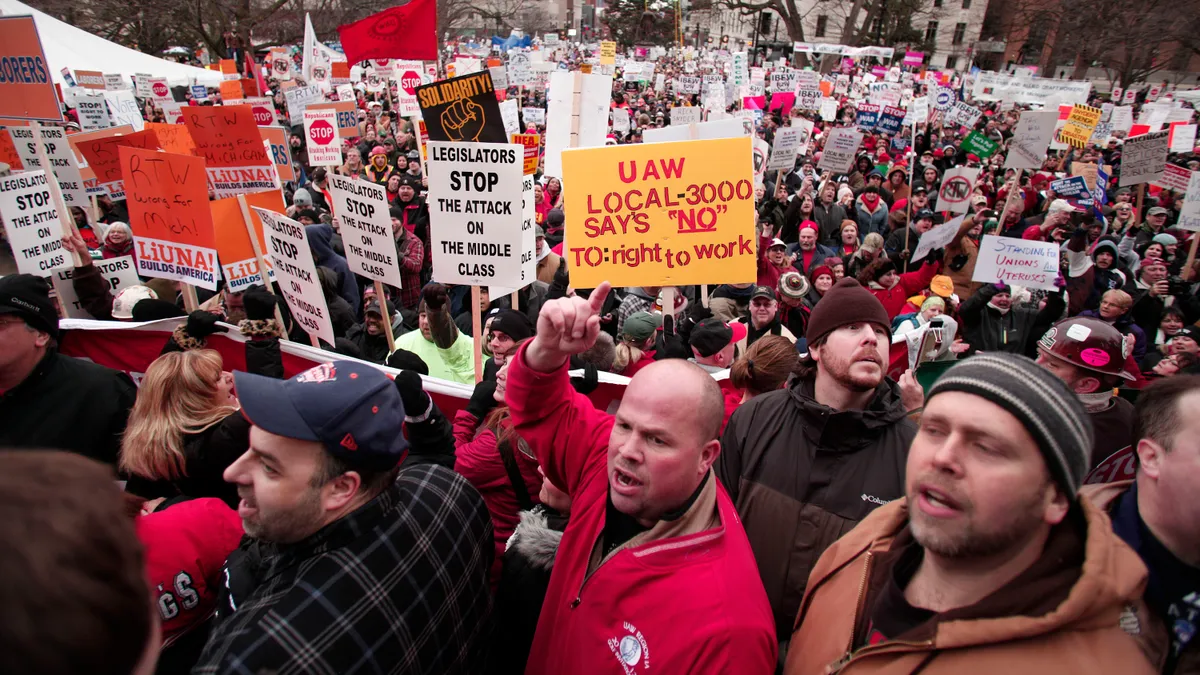As they ready for Michigan’s “right-to-work" repeal to go into effect, employers should prepare for new negotiations with unions representing employees at their workplace, management-side attorneys said.
Under the so-called “right-to-work” law, employees at union sites could decline to pay union dues or fees. Repeal of the 2012 law, which was signed into law Friday by Democratic Gov. Gretchen Whitmer, will allow unions to require workers to pay for the cost of their representation. It is expected to go into effect March 30, 2024.
“We are coming together to restore workers’ rights, protect Michiganders on the job, and grow Michigan’s middle class,” Whitmer said in a news release. Along with the “right-to-work” repeal, Whitmer also reinstated a prevailing wage law that requires contractors working on state construction projects to pay union wages to workers.
Michigan currently has a Democratic governor and Democratically-controlled House and Senate, creating “the perfect storm” for such legislation to pass, said Christopher Mikula, a shareholder at Ogletree Deakins, a management-side law firm. Twenty-six other states have “right-to-work” laws, and Mikula said similar repeals are “unlikely” in other states unless their governments are controlled by parties in favor of repeal.
In Michigan, employers should expect to see unions look to add security clauses to their contracts, if they don’t already exist, lawyers said. The security clause allows collective bargaining agreements to require union membership and dues as a condition of employment.
“I have to believe all of them are really going to push to get these security clauses in there,” said William Altman, regional managing partner at Fisher Phillips, a management-side law firm.
In some cases, agreements might have a “snap-back” protection, which would automatically put union security language back into a contract, Mikula said. “Some unions were hoping the law would be repealed, and they negotiated language that would implement the union security provision in the event ‘right-to-work’ was repealed,” Mikula said.
The Michigan AFL-CIO called the repeal “historic legislation to restore workers’ rights.”
“After decades of anti-worker attacks, Michigan has restored the balance of power for working people by passing laws to protect their freedom to bargain for the good wages, good benefits and safe workplaces they deserve,” Michigan AFL-CIO President Ron Bieber said in a news release.
Mikula said he expects union membership in the state to increase gradually as the new law goes into effect.
“One broad consequence of the appeal will likely be an increase in union membership numbers, but that won't happen for a few years,” Mikula said. “Our economy needs to get back on track before we see an increase of union members.”













